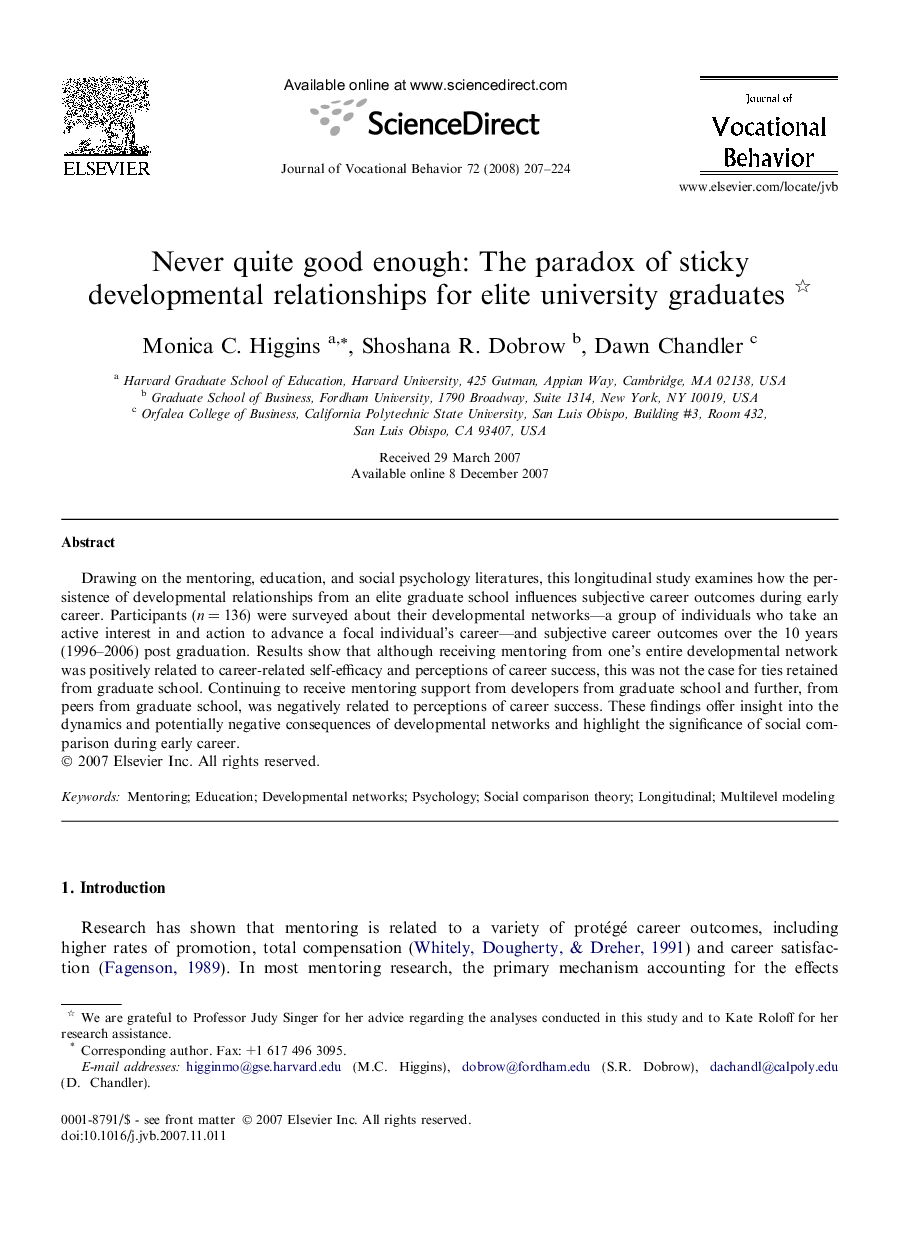| Article ID | Journal | Published Year | Pages | File Type |
|---|---|---|---|---|
| 887545 | Journal of Vocational Behavior | 2008 | 18 Pages |
Drawing on the mentoring, education, and social psychology literatures, this longitudinal study examines how the persistence of developmental relationships from an elite graduate school influences subjective career outcomes during early career. Participants (n = 136) were surveyed about their developmental networks—a group of individuals who take an active interest in and action to advance a focal individual’s career—and subjective career outcomes over the 10 years (1996–2006) post graduation. Results show that although receiving mentoring from one’s entire developmental network was positively related to career-related self-efficacy and perceptions of career success, this was not the case for ties retained from graduate school. Continuing to receive mentoring support from developers from graduate school and further, from peers from graduate school, was negatively related to perceptions of career success. These findings offer insight into the dynamics and potentially negative consequences of developmental networks and highlight the significance of social comparison during early career.
